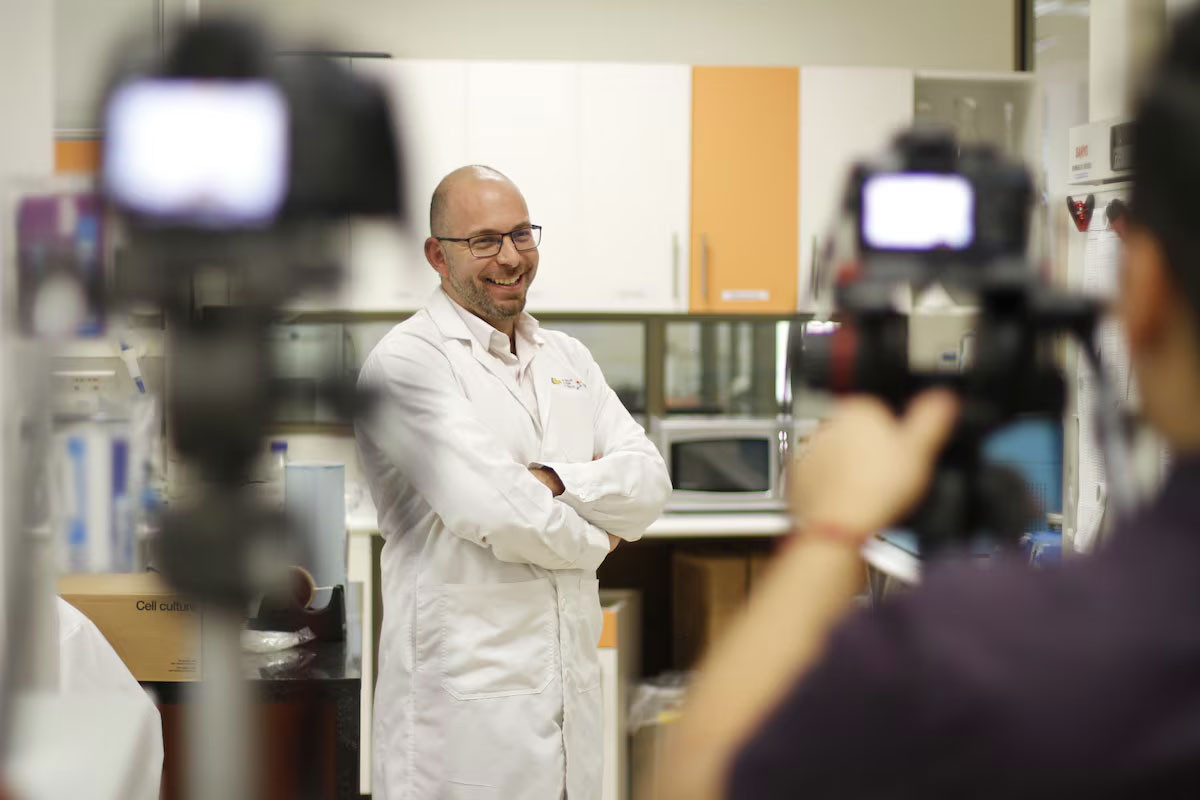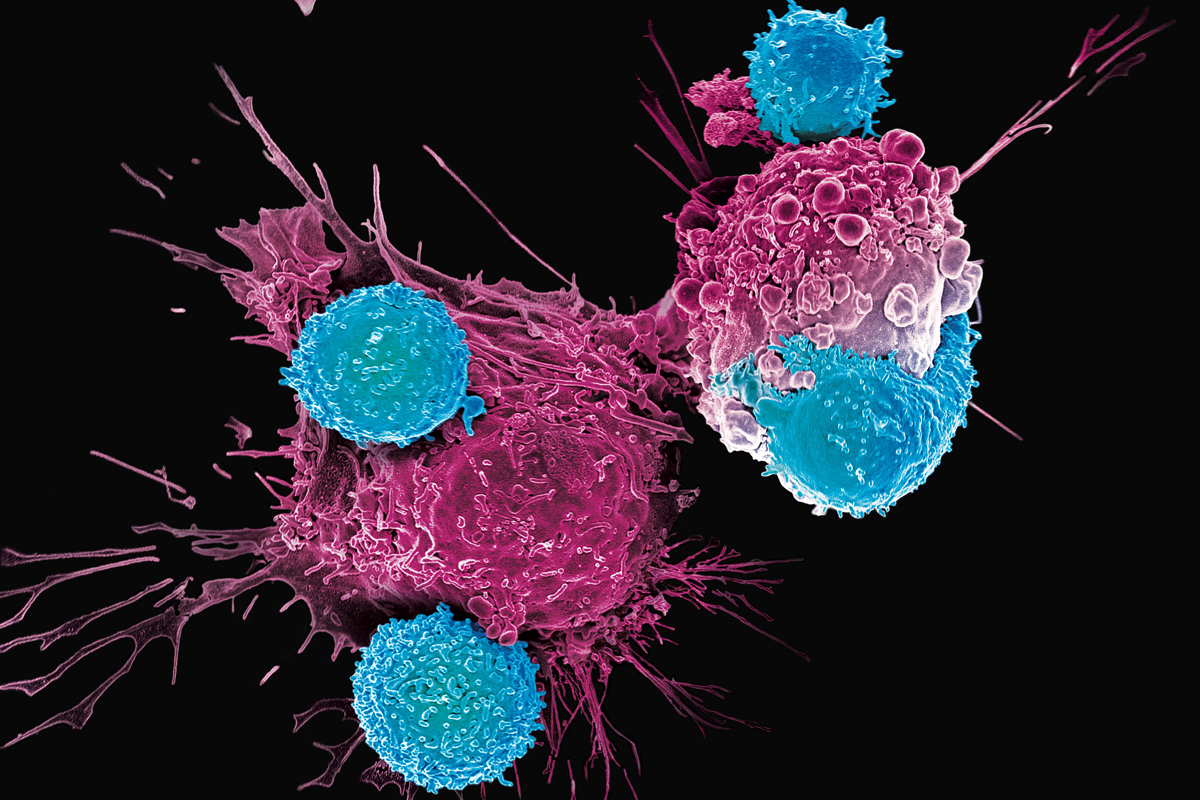The team led by scientist Maroun Khoury, director of the IMPACT Center of Excellence at University of the Andes, found that transferring mitochondria (the energy-producing organelles of cells) from mesenchymal stem cells to T cells can significantly increase their survival rates and their ability to fight cancer.
A team led by scientist Maroun Khoury, Director of the IMPACT Center of Excellence , which includes leading scientists from important research centers such as Millennium Institute in Engineering and Artificial Intelligence for Health (i-HEALTH), the Institute of Biological and Medical Engineering of Pontificia Universidad Católica, the Center for Biomedical Research and Innovation of Universidad de los Andes, the Advanced Mining Technology Center of University of Chile, and the Science and Technology Research Ring 2021 project for the production of biopharmaceuticals at Pontificia Universidad Católica de Valparaíso , found that the transfer of mitochondria (the energy-producing organelles of cells) from mesenchymal stem cells to T cells can significantly increase their survival rates and their ability to fight cancer.
The study, published in the scientific journal, Journal of Translational Medicine,was conducted in collaboration with Brazil's National Cancer Institute (INCA), highlights how this innovative mitochondrial transfer technique can enhance natural and engineered T cells, paving the way for advances in cancer immunotherapy.
This research was conducted in the IMPACT Basal Center, which is financed by the Chilean National Agency for Research and Development (ANID) , develops and implements technologies that allow access in Chile to the most successful advanced medical therapies in the world.IMPACT also supports the creation of a network, both in Santiago and in the regions, to accelerate multidisciplinary research with high translational impact.

This discovery has implemented an innovative method to enhance T and CAR-T cells, the natural (produced by our body) and artificial (produced in a laboratory) defenders against cancer, by providing them with a mitochondrial super-charge. CAR-T cells are engineered immune cells that are modified to express receptors that specifically target cancer cells. This therapy involves extracting a patient's T cells, enhancing them in a clinical-grade laboratory, and reintroducing them to improve cancer-fighting capabilities.
"It's like transforming a standard sedan into a race car. These so-called 'Mito-CAR-T' cells not only achieve greater survival, but are equipped for maximum performance, enabling them to execute a more efficient attack against cancer cells," explains Maroun Khoury.
Published in the scientific journal Journal of Translational Medicine, the study, which was conducted in collaboration with Brazil's National Cancer Institute (INCA), highlights how this innovative mitochondrial transfer technique can enhance natural and engineered T cells, paving the way for advances in cancer immunotherapy.
"Basically, we are teaching the old cells new tricks. By increasing their energy production, we are giving these T cells a better chance to survive and overcome their cancer opponents," Khoury says.

This advance addresses one of the main limitations of CAR-T therapy: the short lifespan of the modified T cells in patients. Manipulation during manufacturing can lead to depletion of the cells, reducing their efficacy. However, with optimized survival rates due to mitochondrial enhancements, these modified immune cells could lead to longer-lasting and more effective cancer treatments.

